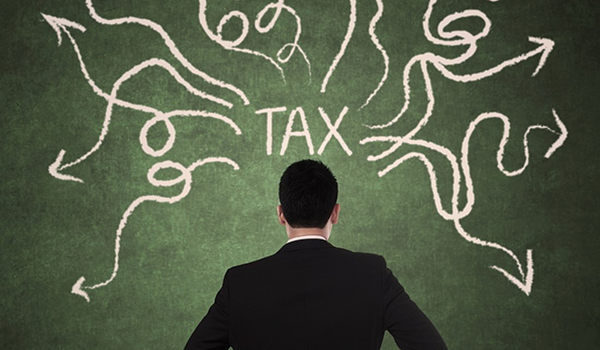 Most business owners are kept busy with the day-to-day operations of running and growing their companies. While they do their work because they are passionate about it, not every aspect of being a proprietor is pleasant.
Most business owners are kept busy with the day-to-day operations of running and growing their companies. While they do their work because they are passionate about it, not every aspect of being a proprietor is pleasant.
In a study done by TD Bank, over half of all the business owners surveyed ranked bookkeeping as their No. 1 hated responsibility of a business owner. According to StatisticBrain, financial issues account for 46 percent of business failures, and at no time does it ring more true than during the tax season.
Tax preparation can be confusing, time consuming, and expensive if you’re not prepared, but it also gets people thinking about greater financial issues, so important to the longevity of their business. Before the tax time, I am often asked about the difference between bookkeepers, accountants (CPAs) and certified tax preparers, officially known as IRS Enrolled Agents or EAs. Though all three types of these financial professionals share some common areas of expertise, the distinctions are vast.
The following is a brief reference guide:
| Bookkeeper | CPA | Enrolled Agent | |
| Provides advice on business structure and financial planning | ✔ | ||
| Provides tax planning advice and audit assistance | ✔ | ✔ | |
| Specializes in income tax preparation | ✔ | ✔ | |
| Has training and education on financial issues | ✔ | ✔ | ✔ |
| Generates financial reports | ✔ | ✔ | |
| Works throughout the year to ensure that business bookkeeping is accurate and up to date | ✔ | ✔* | |
| Does payroll and payroll tax returns | ✔ | ✔* | |
| Is able to assist with tax matters in multiple states | ✔ | ||
| Does sales tax returns (TPT) | ✔ | ||
| Analyzes and interprets financial reports | ✔ | ||
| Prepare forms 1099 and W-2 | ✔ | ✔ | |
| Cost of preparing tax returns with all bookkeeping information in order | $$$ | $$ | |
| Cost of preparing tax returns without having all bookkeeping information | $$$$ | $$$ | |
| Cost of doing on-going bookkeeping activities | $ | $$ | |
| Times of engagement | Continuous | 1-4 times a year | Once a year |
While there is a certain amount of overlap between the expertise of the three types of financial professionals, there are numerous differences, and each financial professional may be uniquely appropriate for a particular task.
Your bookkeeper is the person entrusted with keeping your books current and complete, so that your accountant, banker, investors or you, yourself, can glean useful, up-to-date information at any time. While most people think of their financial records in the context of tax preparation, having up-to-date, accurate books can become a valuable business tool in itself, helping a business owner avoid bank overdraft fees, better manage their operations, secure financing and maximize their company’s future growth.
A bookkeeper may be able to prepare some of the tax forms required by IRS, such as 1099s for your contractors. Even though the bookkeepers do not prepare tax returns, having books up-to-date can bring significant savings. A recent survey by Xero indicates that 54 percent of accountants say their clients don’t have up-to-date records, which results in accountants having to charge those clients for up to 20 additional hours to prepare their tax return. Some accounting firms also offer bookkeeping services, though they typically outsource their bookkeeping, resulting in significantly higher costs than if you were to use a dedicated bookkeeping company.
While most of us go to accountants to prepare tax returns, their advice may extend well beyond tax preparation, and will likely include future tax planning and ongoing evaluation of business performance, including ideas on improving the operating results, as well as advice on staying compliant with the many financial regulations. Hence, it is useful to meet with your CPA at least once each year, and perhaps as often as every quarter, to have them review the operating books of your business, provided the books are all current.
Meanwhile, due to the focus of the EA’s activities on tax preparation, it is natural to engage services of the tax preparers once a year. The non-CPA tax preparers may be a good, cost-effective option for an individual or a business whose tax situation has remained constant from previous years. The EAs are well qualified to prepare tax returns, and may represent clients with inter-state tax issues, which a regular CPA cannot. Because of this, some CPAs also get qualified as EAs in order to provide their clients with a more versatile suite of tax services, though at higher CPA rates.
I hope this clears up some of the confusion regarding which professional is best for your needs and when is best to consult them. For professional bookkeeping services, bookkeeping advice, accountant recommendations, and tax preparer recommendations in Arizona, do not hesitate to contact KORE Bookkeeping solutions at info@korebookkeeping.com.
Inna Korenzvit is owner and CEO of KORE Bookkeeping Solutions, an Arizona-based professional bookkeeping company focused on helping its clients reach new levels of financial clarity while allowing them to focus their time on what they do best — running and growing their business.











